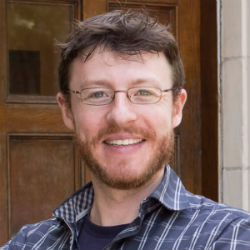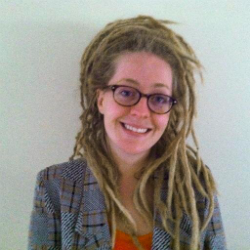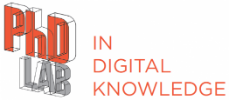Provoke! creates a home for creative-critical projects by makers, documentary artists, and sound scholars whose work presses at the boundaries of scholarship. Envisioned as “provocations” to existing forms of publication, these projects relate to one another through their deep engagement with sonic materials and innovative formal presentation. Rather than drawing from a particular historical period, culture, methodology, or set of aesthetic objects, Provoke! collects a series of processual explorations connected through an ethos of play, experimentation, and social interaction. Because of their sonically inspired, collaborative nature, many of these projects fall outside the purview of traditional academic publishing, yet each one offers a critical contribution to the ongoing dialogue about the future of sound studies and digital humanities.
The digital turn provides an unprecedented opportunity to rethink the forms through which scholars and artists communicate. The editors, known collectively as Soundbox, wish to see audio material featured more abundantly and creatively in scholarly settings. At the heart of our collaboration is a bold aspiration to hear sound used as a primary means of knowledge production. Accordingly, we have designed this website to privilege the auditory experience. Each Provoke! project is formally unique: some have digital spaces of their own and others are contained entirely within this website. The contributors document the ideas and processes that went into the creation of their pieces, with the goal of empowering others to experiment with audio-based scholarship.
Table of Contents
Paperphone: Vocal Effects in Scholarly Presentations
Paperphone is a scholarly voice and audio processor designed to amplify performativity in academic knowledge production.
We are Your Neighbors: Dialogues Across the Wall of Silence
In Richmond city Jail, collective caliban installed a recording studio. With incarcerated artists, they explore sound in sanctuary.
Finding Ibrida: Speculating and Prototyping Two Historically-Informed Guitar Bodies
Take a pawnshop guitar body and embed uniquely designed electronic effects using technologies ranging from vacuum tubes to an Arduino.
Susurrous Scholarship: Making Knowledge Sonic
Susurrous Scholarship translates written academic articles into sound pieces, playing with access and address in knowledge production.
Organs of the Soul: Sonic Networks in Eighteenth-Century Paris
Organs of the Soul tunes your ears to how auditioning subjects heard voices, sound and music in #c18 Paris.
A Tale of Two Soundscapes: The Story of My Listening Body
Garbage Trucks/Geese. Ambulances/Cicadas. Two Epic Soundscapes, One Epic Tale.
The Grand Rue: Roads as Thoroughfares of Life
The Grand Rue is a city symphony of sounds featuring audio collected three days before the devastating 2010 earthquake in Port-au-Prince, Haiti.
Technical Specifications
This website is built using HTML5, CSS, and the jQuery JavaScript library. The audio player was built by Charles Mangin and Marc Harkness using the jPlayer media library.
For an optimal experience, the editors recommend that you browse this website using Chrome 39 or higher, Internet Explorer 9 or higher, Safari 7 or higher, Opera 26 or higher, and Firefox 34 or higher. Audio rollovers may not work as expected on touchscreens.
And, of course, be sure to turn up your audio!
Licensing
This work is licensed under a Creative Commons Attribution-NonCommercial-ShareAlike 4.0 International License. You are free to share and remix the material in any medium or format for non-commercial distribution, as long as you 1) give appropriate credit to the original authors; 2) indicate what, if any, changes were made to the materials; and 3) distribute the material under the same license. For more information on your rights as a user, please visit the link attached to this license.
Archiving
This site, including all media files, will be digitally archived by the Duke University Libraries.
Acknowledgments
The editors of this project, Soundbox, could not have convened this collection without the support of many people. At Duke University, we are deeply indebted to the Franklin Humanities Institute, whose Graduate Digital Scholarship Initiative seeded the ideas that became Provoke! and funded its progress generously at every twist and turn. The PhD Lab in Digital Knowledge at Duke, and its leaders, have also provided moral and financial support. We wish to thank Ian Baucom, Cathy Davidson, David Bell, Mary Williams, and especially Chris Chia for all they have done to give life to this project. We have also received tremendous support from the staff at Duke Libraries, especially from Liz Milewicz, an early champion of our collaboration, as well as Paolo Mangiafico and Kevin Smith. We are pleased currently to have a home in the Audiovisualities Lab at Duke University, and we wish to thank its co-directors Jacqueline Waeber and Guo-Juin Hong. At Duke University Press, we are grateful to to Ken Wissoker, Allison Belan, and Elizabeth Ault for their enthusiasm and insight. We are also grateful to Meredith Kahn and her MLibrary colleagues at the University of Michigan for their helpful feedback.
One of the greatest pleasures in creating this collection has been the opportunity to connect with a generous community of scholars, whose encouragement and feedback have been indispensable resources. We wish to thank Jonathan Sterne, Monica Hairston-O'Connell, Louise Meintjes, Jentery Sayers, William Burdette, Ashon Crawley, D. Edward Davis, Craig Eley, Jonna McKone, Tim Hambourger, Seth Muliken, David van Dokkum, Paul Sommerf, Michael Kramer, Robin James, Dan Partridge, and the editorial team behind the stalwart Sounding Out! sound studies blog, Jennifer Stoever, Liana Silva, and Aaron Trammell. The exclamation point in the title of this web collection nods to their foundational efforts to expand the presence of sound studies scholarship online.
We have been fortunate to collaborate with Marc Harkness of Harkness Design and Charles Mangin on the creation of this website. Their ingenuity and nimble design solutions have helped us to realize impossible dreams. We are grateful to Phil Torres for providing technical support for sound recording and editing.
Finally, we wish to acknowledge the Provoke! contributors, whose adventurous spirits and inspirational work have taught us a great deal. We thank you for putting your confidence in this experiment and entrusting us with your creations. Our hats go off to Steph Ceraso, Wendy Hsu, Jonathan Zorn, Myron Beasley, Robert Peterson, Kenneth Stewart, Rebecca Geoffroy-Schwinden, colectivo caliban (Danah Bella, Liz Canfield, Salvador Barajas, and John Priestley), Kevin Gotkin, Alex Gomez, Corrina Laughlin, and Aaron Shapiro.
The Editors

Darren Mueller is a doctoral candidate in Musicology at Duke University with interests in jazz, the history of sound reproduction, and performance studies. His current research on the jazz industry's adoption of the long-playing record examines how technologies of reproduction implicate contestations over musical aesthetics, style, and race in the US during the 1950s. He has published in Jazz Perspectives, Ethnomusicology Review, and Sensate.
Mary Caton Lingold's research and teaching bridges historical and digital approaches to sonic scholarship. She is the founder and co-director of the Sonic Dictionary, an inter-institutional pedagogical experiment. Through her doctoral research at Duke, she argues that it is possible to hear the sounds of the pre-recorded past through an examination of early Afro-Atlantic musical life in Anglophone literature (1650-1850).

Whitney Trettien's work reimagines what it means to read, write, and think across different media ecologies. Weaving together archival research and creative use of technologies, she has written, published, and designed work both artistic and critical in the fields of book history, Renaissance literature, media archaeology, and digital humanities. Currently, she is a Mellon/ACLS Dissertation Completion Fellow, finishing her doctorate in English at Duke University.


